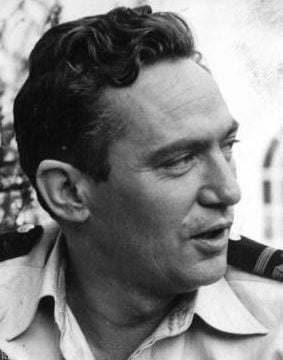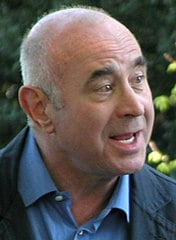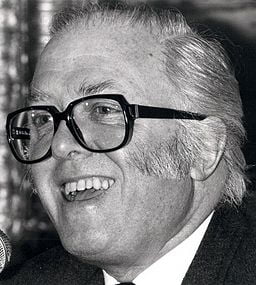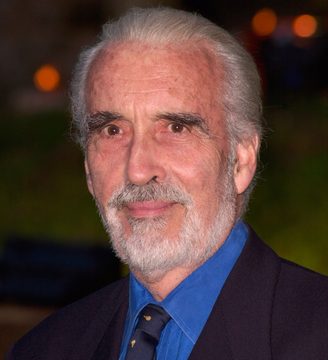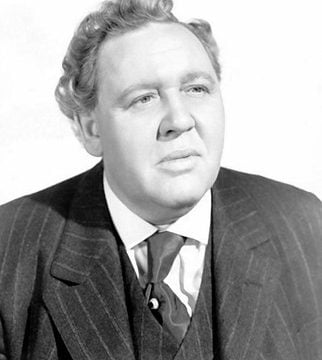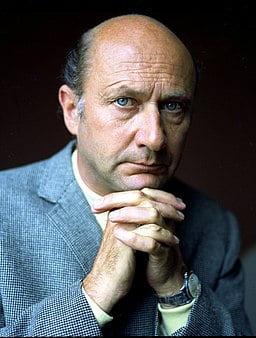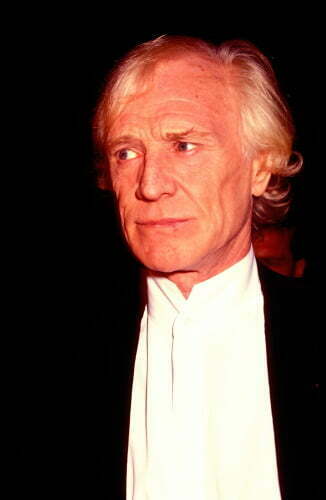
Early Life
Richard Harris was born on 1 October 1930 in Limerick, Ireland. He was one of nine children born to farmer and flour mill owner, Ivan Harris, and his wife Mildred. Harris attended Crescent College, a Jesuit school, where he excelled at both rugby and literature. However, he contracted tuberculosis while still in his teens. Almost all of the next 3 years were spent in a sick bed, effectively ending his aspirations of a sporting career. Harris remained a lifelong sports fan, particularly of rugby, but now turned his attention towards the theatre.
After completing his education, Harris moved to London with the intention of becoming a film director. However, he found it difficult to find a suitable course, so decided to enrol with the London Academy of Music and Dramatic Art (LAMDA), instead. After completing his art studies at the academy he joined the stage director Joan Littlewood’s Theatre Workshop. Harris began his acting career with a few minor roles in London’s West End theatre productions. He then spent the next decade treading the boards on stages up and down the country in relative anonymity.
Early Film Career
In 1959, Harris made his film debut when he landed a minor role in the British Comedy ‘Alive and Kicking’. His next film was ‘Shake Hands with the Devil’ (1959), which starred James Cagney as a warmongering IRA leader. Harris then landed a supporting role in ‘The Wreck of the Mary Deare’ (1959), which starred Gary Cooper and Charlton Heston. In 1961, he landed a supporting role as a bomber pilot in the WW II epic, ‘The Guns of Navarone’.
In 1963, Harris finally got his big breakthrough when he netted his first lead role in the British kitchen-sink drama ‘This Sporting Life’. His portrayal of the hard-man rugby league player, Frank Machin, earned him an Oscar nomination. He then went on to star alongside Kirk Douglas in the British WW II classic ‘The Heroes of Telemark’ (1965). Harris made a further five films during the rest of the decade, all of which can be described as mediocre at best. However, in 1970, Harris made one of his most memorable films, portraying Englishman John Morgan in the cult Western classic ‘A Man Called Horse’.
Notable Performances
Some of the other notable films in which Harris co-starred or played a supporting role include, ‘Jaws’ (1977), ‘The Wild Geese’ (1978), ‘The Field’ (1990), ‘Unforgiven’ (1992) and ‘Gladiator’ (2000). In 2001, with declining health, Harris reluctantly took the role of Dumbledore in ‘Harry Potter and the Philosopher’s Stone’. He reportedly only accepted the part after a lot of persuasion by his 11-year-old granddaughter. He went on to play the character again in the second Harry Potter film, ‘Harry Potter and the Chamber of Secrets’ (2002).
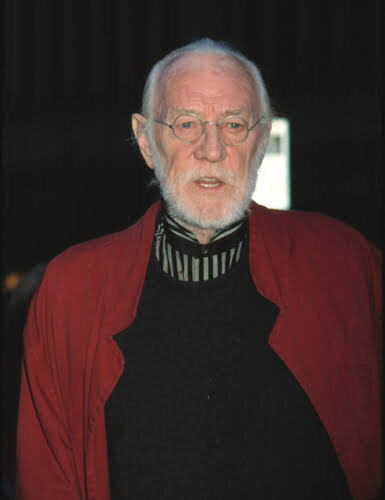
Richard Harris in 2001 at the premier of Harry Potter. Image credit: Everett Collection/Shutterstock.com
In all, Harris made some 75 films during his 40-years plus, film acting career. His final screen role was the portrayal of Lucius Sulla in the film Julius Caesar (2002), which was released posthumously. However, his very last onscreen presence was in the French-Canadian produced film ‘Kaena: The Prophecy’ (2003), voicing the character of Opaz just before his death in August 2002.
Singing Career
Though untrained, Harris achieved some notable success as a singer, which he practised through much of his career. His first album, A Tramp Shining, included the seven-minute hit song “MacArthur Park”. The song, released in 1968, was written by American singer-songwriter Jimmy Webb, reached No. 2 on the American Billboard Hot 100 chart. Also a hit in Europe, the song went on to sell over a million copies and was awarded a gold disc. Harris’s second album, The Yard Went on Forever, released in 1969, was again highly influenced by Webb. He then went on to make several other albums, including ‘The Richard Harris Love Album’ (1970), My Boy (1971) and Slides (1972). He also performed a number of scripted songs during his film career and gave numerous singing renditions during his many stage performances.
Personnel Life
In 1957, Harris married Elizabeth Rees-Williams, daughter of Welsh politician David Rees-Williams, the 1st Baron Ogmore. The couple produced three sons, Damian (1958), Jared (1961), and Jamie (1963), but the marriage ended in 1969. Later, Elizabeth married the famed British actor, Rex Harrison. In 1974, Harris remarried, this time to the American actress Ann Turkel. However, their union also ended in divorce, some eight years later, in 1982.
By the height of Harris’s fame in the 1960s, he was well-known as a heavy drinker and hellraiser. In the early 1970s, he confessed to being an alcoholic. Big drinking buddies of the time included fellow mischief-making actors Peter O’Toole, Richard Burton and Oliver Reed. However, Harris eventually managed to wean himself off alcohol, declaring himself teetotal in 1981. However, he also had known problems with drugs, almost dying from a cocaine overdose in 1978.
In 1973, it came to light that Harris was a fervent sympathiser of the paramilitary organisation, the Irish Republican Army (IRA). Through the 1970s, Harris was prone to expressing anti-British sentiment whenever he had a suitable platform. However, his remarks on the IRA bombing of London’s Harrod’s store in December 1983, were controversial to say the least. A barrage of negative press in early 1984 saw Harris publicly withdraw his support for the IRA and condemn the violence instead. Later, Harris claimed to have received death threats from the IRA because of his change in stance.
Death
Harris was diagnosed with Hodgkin’s disease in August 2002, following a spell of hospitalisation with a bout of pneumonia. He died two months later on 25th October at University College Hospital in Bloomsbury, London, aged 72 years, his final three days having been spent in a coma. Following cremation, his ashes were scattered in the Bahamas, where he owned property.
In a 2021 interview, filmmaker Chris Columbus revealed that Harris had been writing an autobiography during his final stay in hospital. However, to date, the book has never been published.
Header image credit: Bart Sherkow/Shutterstock.com
